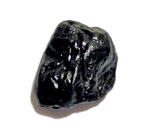Cell Phone Photos May Make Adherence a Snap
Posted by: admin on: September 22, 2011
- In: Pharmacology
- Comment!
Using a cell phone to snap and then send photos of each dose of medication right before taking it may improve treatment adherence in patients with methamphetamine addiction, new research shows.
-Team@CMHF
- This simple, cost-effective method also may be applicable in other patient populations in which adherence are an issue.
- In a small pilot study of 20 methamphetamine-dependent patients prescribed either modafinil or placebo, investigators found that cell phone pictures provided “more accurate time measures and more frequent adherence assessment” than either pill counts or medication event monitory system lids (MEMS Caps).
- Given the ubiquity of cellular telephone use, and the relative ease of this adherence measurement method, it is believed that it is a useful and cost-effective approach.
- Although both cell photos and bottles with MEMS Caps were useful for collecting adherence data, the photo method underestimated adherence and the MEMS bottle method overestimated it compared with pill count.
No Gold Standard
- According to the researchers, individuals are often reluctant to admit to medication non-adherence, with self-report overestimations reaching as high as 300%.
- Although many methods of measuring adherence have been investigated, there is as yet no ‘gold standard’, the authors write.
- Traditional counts of dosage units do not provide information on when capsules are taken or even if they were taken at all.
- In contrast, MEMS Caps, which uses bottle caps equipped with microchips to record each bottle opening, is an expensive method of tracking adherence and does not differentiate between opening the bottle to take the prescribed dose and just opening it to check how many capsules remain.
- However, these days, more and more people have cell phones that can take photographs.
Time Stamped
- The 20 methamphetamine-addicted patients enrolled in this study (55% men; mean age, 40.9 years) were issued cell phones and a week’s worth of either modafinil or placebo capsules in MEMS Cap–equipped bottles.
- They were told to take 1 capsule per day for 8 weeks and to record their adherence by taking a photo before ingestion and then immediately emailing it to a specified account. A time stamp was included on every picture.
- During weekly inpatient visits, pill counts from returned bottles were also recorded for each participant and compared with weekly MEMS and photograph estimates of adherence.
- Results showed an overall adherence estimate of 94.9% (standard deviation [SD], 13.5%) by pill count, 93.6% (SD, 15.0%) by MEMS, and 76.9% (SD, 14.6%) by cell photo.
Cause for Concern
- The researchers note that the underestimation may be a result of photographs not being sent in, even though the participants would receive payment to do so.
- In the clinic, low estimates may increase attention to adherence, but spuriously high estimates may lead to false confidence by the clinician; therefore under-reporting is preferable.
- Some social desirability issues, where people may want to present as having taken their medications, can lead to overestimation of adherence for pill counts also.
- The investigators note that some discrepancies in the timestamp recordings by MEMS were detected, with 62% of the photos showing timestamps earlier than the recorded MEMS timestamps.
- As timestamps are a primary benefit of MEMS, this discrepancy is cause for concern.
Privacy Concerns
- Privacy concerns were also cited as a possible limitation of the cell phone photo method.
- Despite data encryption used by phone carriers, it is possible to intercept or monitor data sent by cellular telephone and potentially even track phone location.
- When asked whether he thought adherence might still be high with the photos without any monetary incentives, the researcher said, that’s a good question and would need to be tested.
http://www.medscape.com/viewarticle/748602?src=mpnews&spon=34
Search
- drchasrani: Difficult to get such a data, authenticated at that. Try Times of India online library
- rakesh pore: hi, where can i get genuine information about "10 most common drugs sold in india?" i want it for a local project
- nilesh dutta: sir, Plz give detail about MBA Sports Management Thanks and Regards


Leave a Reply